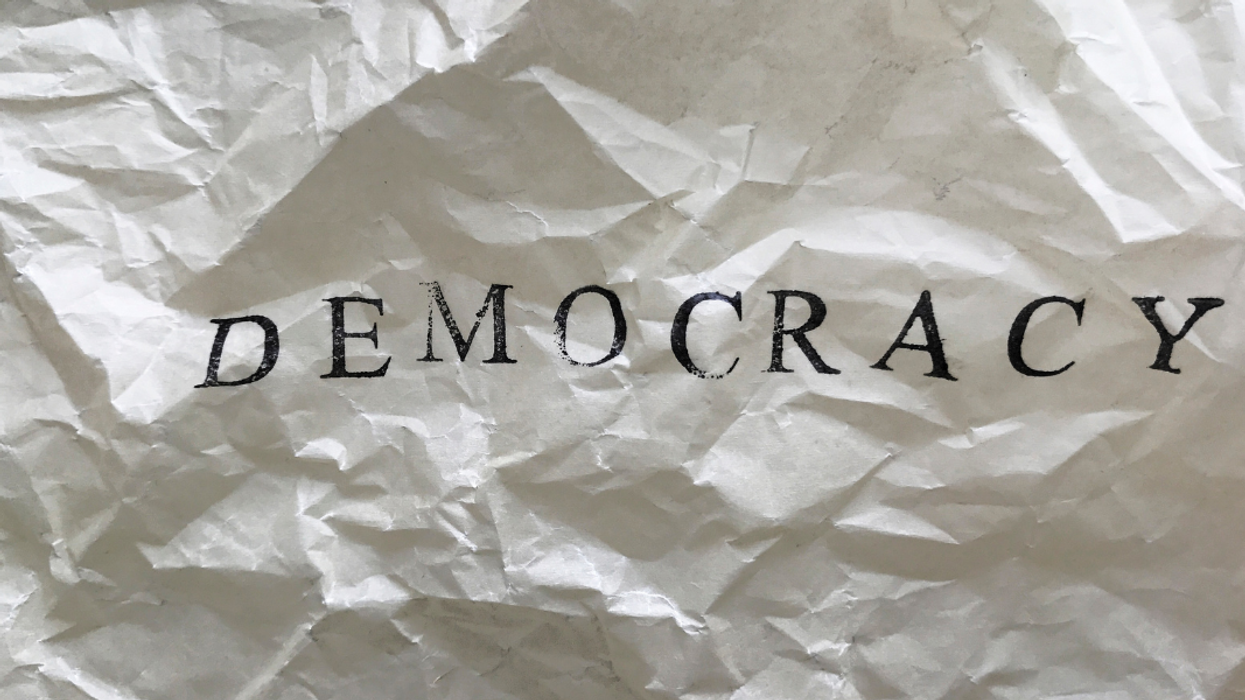Lappé is the author of the three-million copy book, “Diet for a Small Planet,” and 19 others, many focusing on themes of “living democracy”—suggesting a government accountable to citizens and a way of living aligned with the deep human need for connection, meaning and power. In 2017, she co-authored with Adam Eichen, “Daring Democracy: Igniting Power, Meaning, and Connection for the America We Want,” focusing on the roots of the U.S. democracy crisis and how Americans are creatively responding to the challenge. Frances is co-founder of Oakland-based Food First, Vermont-based Center for Living Democracy (1991-2000), and the Cambridge-based Small Planet Institute, which she leads with her daughter Anna Lappé.
Our country lives at a time of great peril and great promise. Multiple crises challenge both the U.S. and the world. The survival of our country, our species and our planet are at stake.
The problem is that the people with the solutions often don’t have the power to implement them; and the people with the power are often unaware that solutions exist.
However, solutions do exist. Today, we offer you the second in a series of essays on critical issues of our time as an introduction to the Solutions Summit 2023 broadcast from the U.S. Capitol where solutions will be brought to the attention of decision makers at every level. This live Zoom broadcast runs from November 6th - 16th, and is free and open to those who register. Please register here.
Explore with us the first of a series of essays on key subjects to be explored at The Solutions Summit.
We gather in a historic moment, one filled with terrifying threats from climate chaos to intra-state conflict—and even greater possibilities.
But no problem. If we identify the root cause, the most intractable problems can be solved. So…let us identify the tap roots of today’s distress.
First is the failure of so many societies, including many democracies, to meet the deepest human needs. And what are these needs? At least three: personal power, meaning larger than oneself, and connection with others. These needs run so deep that when not met constructively, humans often resort to domination and blaming.
So, what have we learned throughout history about the conditions proven to meet these needs positively?
Three conditions stand out:
● The wide dispersion of power so that no one remains powerless.
● Transparency in decision making.
● A culture of mutual accountability in which it’s understood that, since we are all connected, we are all responsible.
And what do these conditions add up to? Democracy.
Thus, my big claim: Democracy is the only form of governance positively aligned with our nature. Yet, for 17 years democracy—measured in political rights and civil liberties - has been deteriorating worldwide. Fortunately, last year saw the narrowest decline.
How do we best respond to democracy’s urgent call? For one, we make clear that democracy is not a dull duty. It is a thrilling way of life. It isn’t simply a particular set of rules. It is a way of life meeting essential needs.
Today, many Americans feel down about our country. Satisfaction with our government has reached a new low. Americans also worry about a weakening economy, polarization, and our widening wealth gap.
The solutions require that we flip pessimism’s paralysis into fuel for action.
Freedom House, founded by Eleanor Roosevelt, ranks our democracy 60th. We could think: Whoa, all those nations are doing better, so there’s proof we can, too! We can translate a negative ranking into evidence for hope.
However, sustaining essential hope demands a courageous democracy movement. In 2021, remember the success in the House passing the omnibus For the People Act before it died in the Senate.
Progress requires building awareness and energy. We can all spread the word that, yes, the power of money in our election is undermining democracy. However, key states and cities are showing us the way by embracing public financing, including the long-running programs in New York City, Arizona, and Connecticut to newer ones in the District of Columbia and Denver.
Two stories I love: Maine’s clean election law enabled waitress Deborah Simpson to gain office and ultimately chair the House judiciary committee and later allowed Chloe Maxmin, —in her twenties,— to make it into the Maine Senate where she has spearheaded key environmental legislation.
Plus, in Los Angeles and New York City small donors provide most candidate funds; and in the last decade a dozen jurisdictions have launched or strengthened programs.
And gerrymandering? In Michigan, young Katie Fahey—starting with one social media post about gerrymandering in 2016—triggered a grassroots campaign that made Michigan a national leader in tackling gerrymandering.
Each of us can spread the news and build Americans’ commitment to defang Super Pacs. Success requires funding transparency, fair districting, automatic-voter registration, as well as public financing. Reforms like these ultimately awaken enough Americans to enable reversing Citizens United.
My point is simple. We can do this. Proof is plentiful, both here and abroad. But perhaps the message I most want to leave with you is this: Our journey for democracy is not a burdensome duty. It is a life enhancing journey. It’s not a “you should” but a “we can.”
And in this spirit, democracy does require one thing above all-- courage: For to believe others can change, we must experience ourselves changing. And that means doing what we thought we could not do.
So, I keep in sight the wise advice of Eleanor Roosevelt: “Do one thing every day that scares you.” So, as we take risks democracy let us reconceive our pounding hearts as our own inner applause cheering us on!
Resources:
- https://reliefweb.int/report/world/conflict-trends-global-overview-1946-2022
- https://freedomhouse.org/report/freedom-world/2023/marking-50-years
- https://news.gallup.com/poll/165371/americans-satisfaction-gov-drops-new-low.aspx
- https://freedomhouse.org/countries/freedom-world/scores?sort=descℴ=Total%20Score%20and%20Status
- https://www.brennancenter.org/our-work/analysis-opinion/public-campaign-financing-bright-spot-shadow-citizens-united; https://www.degruyter.com/document/doi/10.1515/for-2017-0015/html?lang=de
- https://michiganadvance.com/2023/10/16/michigan-earns-high-marks-on-redistricting-in-new-report-with-room-for-improvement/



















Trump & Hegseth gave Mark Kelly a huge 2028 gift